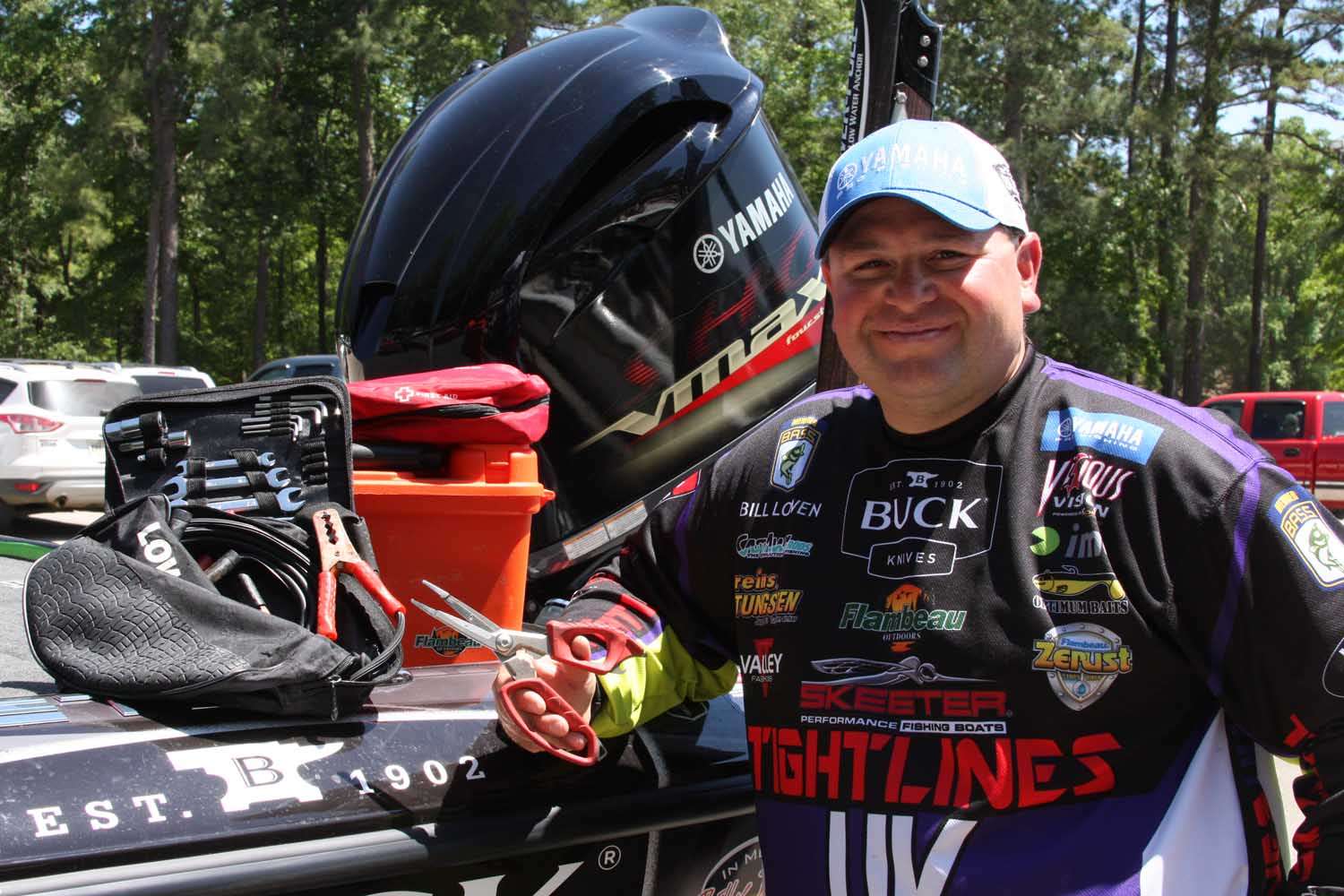
If you’re an angler, the tools that get you through the day are more than just rods, reels, lines and baits. Sometimes you need wrenches, screwdrivers, pliers, scissors, clippers or some other gadget that’s just right for the task at hand.
The key to carrying tools on the water is to have all you need and no more, to consolidate where you can, to lighten the load whenever possible and to absolutely know where everything is at the moment you need it.
As a touring bass pro, I’ve probably got way more than my share of tools for the boat, my tow vehicle and all my gear. It’s easy to get overloaded and even easier to get disorganized. I keep the bulk of my tools in my vehicle — handy when I really need them, but not in the boat so that they get in the way or add weight.
For the boat, my tool selection is simple and straightforward. I can count the basic tool types one hand even if all the parts add up to hundreds of little items.
Wrenches
You can’t keep nuts and bolts tight — or loosen and take them off as needed — without a selection of wrenches, so I carry sets of socket and Allen wrenches with me at all times. And I go the extra step to make sure that I have a wrench for each and every nut and bolt on the boat and trailer.
I may not use my wrenches on any given day, but I can’t tell you the last time I didn’t need them on a road trip. They get lots of use, so buy quality. Wrenches are essential for the basic maintenance that keeps a tournament pro on the water.
Screwdrivers
Flatheads and Phillips heads — I carry them in several sizes to handle any job that comes up, from reel issues to any maintenance needs on the boat. Don’t get caught without a good range of sizes, either.
You never know when you’ll need a tiny screwdriver to tighten up some eyeglass frames or a big screwdriver with a long handle to get into a tight space.
Jumper Cables
Today’s batteries are better than ever before, but every so often something goes wrong and you end with a dead battery … usually at the worst possible time and place. Good jumper cables can prevent you from being dead in the water, get you back fishing or get you back to the ramp.

Long cables aren’t essential in a bass boat, but they come in handy if you’re trying to help another boat out on the water. Then, longer is definitely better.
First Aid Kit
No one wants to need a first aid kit, but when you do need it nothing else can help you. Don’t skimp here. Get a good kit with plenty of bandages, disinfectants, tape and some aspirin.
A good first aid kit can save your day, your fishing partner’s day or even the life of another boater. Keep one handy and change it out regularly — at least every year. That stuff doesn’t last forever.
And creating a first aid kit is easy. You don’t have to buy a pre-packaged one, though that makes things easy. There are plenty of good websites out there with guidelines for creating your own first aid kit, like this one from the Red Cross.
Splizzors
A few years ago I was thinking about all the tools I use with my fishing — needle nose pliers, scissors, crimpers, hook removers — and realized how great it would be if all of those tasks could be combined in one tool. I went to my sponsor, Buck Knives, and we came up with “Splizzors.”
Today, Splizzors are the only tool you’ll find on my front deck because they handle every task and handle it better than all of those other tools could individually. Splizzors are needle nose pliers, crimpers, hook removers and they cut line — including all sizes of braid — like a hot knife cuts butter. With just one tool on deck with me, I’m not tripping over stuff throughout the day or trying to keep a lot of other tools in their place.
I even carry a spare set of Splizzors for my back deck. If I’ve got a buddy or co-angler back there, I don’t want him up front borrowing my stuff and potentially misplacing it. Instead, I make sure he has everything he needs right where he needs it.





